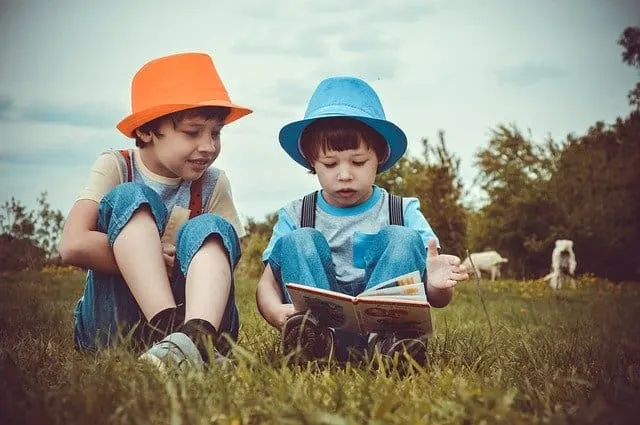
The tradition of stories dates back to humans settled in caves, painting and carving story illustration on walls. Storytelling had been an intricate practice for humanity to share tales and folklores across generations, shaping the conventional fables we are now more accustomed to. Hence, it is naïve to underestimate the essence of stories as a learning tool.
Experts link how childhood stories can formulate guiding ideologies and principles for a child’s future success. Children often get emotionally attached with the stories told to them and see “happy endings” as personal joy and pleasure.
Fictional narratives help with the individual’s ability to creatively think and form artistic imagination. If the habit of reading books is established early, it is proven to be more fruitful with regards to personal development.
Early introduction to reading books or oral stories exposes to children to new vocabulary and improve their language skills. Storytelling experiences mold children’s imagination and enhance their attention skills. If you are reading a book out loud or narrating a tale from memory, make sure your child’s early learning Chatswood experience is provided with a generous storytelling time.
The following are truly beneficial traits a child can acquire from the ancient medium.
-
Improves Vocabulary and Language Skills
Encountering new words in a book is a fun way for children to recognize and understand more difficult vocabulary. Young children carry more capacity to learn languages quicker and stories help them to infer meaning of words more efficiently. Teachers and parents can help a child reading an advanced book so adults can better gauge if he/she properly understood it.
Storytelling has been especially beneficial for bilingual parents to introduce English Language to their children at an early age. Your child will observe that words are formed through different letters and how each alphabet is pronounced depending on the use. Additionally, picture books will help them to correctly associate words to the illustrations on the page.
-
Introduction to Global Cultures and Beliefs
Storytelling is the oldest form of education. Communities across the globe relied on this tradition to pass down their cultural values and history to future generations.
Fables and folklores carry the core principles of the community and children can explore their own culture and many around them. Stories are also a strong reminder of changes through time and offer a chance for children to imagine life across time.
-
Emotional Development
Stories have the power to effectively communicate and form emotions for the characters in it.
Going though the book, children will recognize how different feelings are positively expressed through characters and will help them to describe their own emotions better. They can also identify what feelings are appropriate in each situation.
Furthermore, stories help children absorb different moral lessons and how to translate them in their own life.
Parents and teachers can explore books as a confidence-building tool and discuss what wisdom the protagonist gained during the story. This will assist children to embrace positive anecdotes and revive them in the real world.
- Sagittarius Man & Gemini Woman Love and Sex Compatibility - January 31, 2024
- Taurus Ascendant Rising Personality Traits in Men (Guide) - January 31, 2024
- How to Seduce and Attract a Sagittarius Man (Seduction Tips) - January 31, 2024
